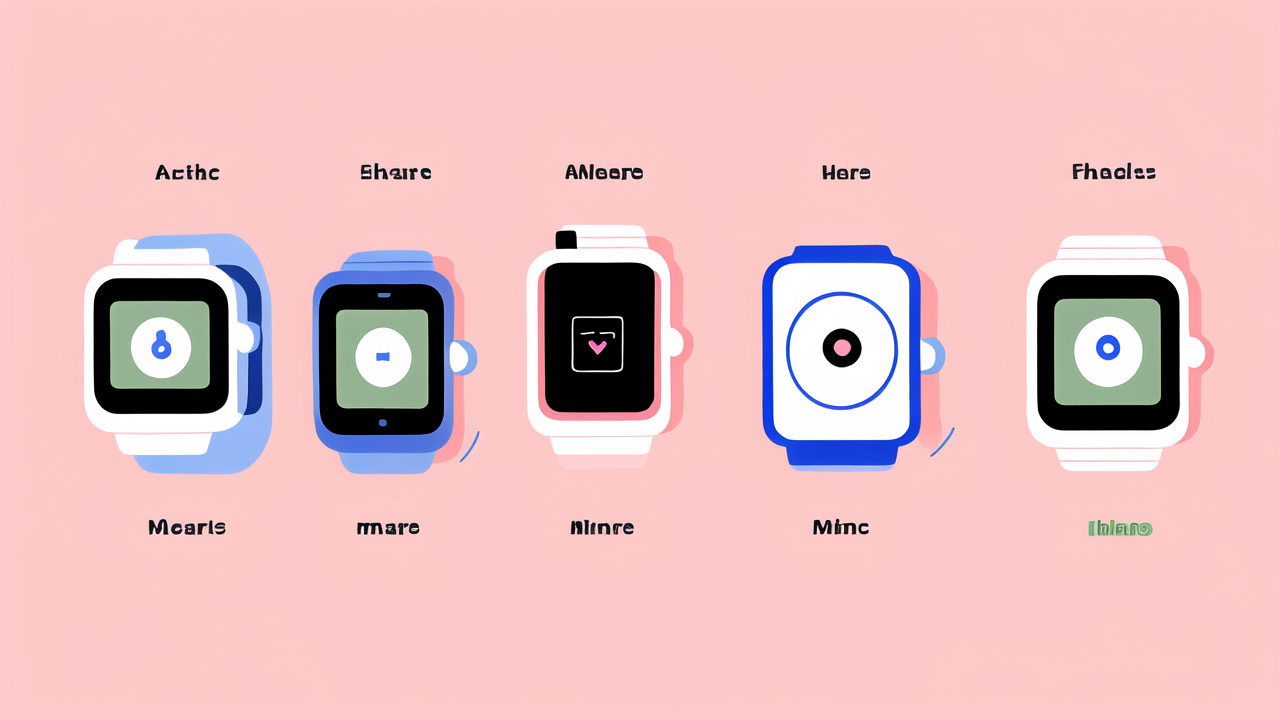The Rise of Smart Watches in the Health Sphere
Understanding the Fusion of Technology and Wearables
Smart watches have become more than just cool gadgets. They are now vital health tools. These devices blend tech and fashion seamlessly. They offer features that were once only found in medical gear. Now, we can track our health with a flick of the wrist.

The fusion of tech and wearables has led to smart watches that do it all. They count steps, monitor heart rates, and even track sleep patterns. Some can detect falls and call for help. This mix of function and style has made smart watches popular with all age groups.
As these devices evolve, they're changing how we think about health. They give us real-time data about our bodies. This info helps us make better choices about our well-being. The result? A more proactive approach to personal health care.
The Evolution of Smart Watch Features for Health Monitoring
Smart watches have come a long way in health monitoring. Early models simply counted steps. Now, they offer a wide range of health features. These include:
- Heart rate monitoring
- Blood oxygen level tracking
- ECG capabilities
- Sleep analysis
- Stress detection
Each new model brings more advanced health tools. Some can now detect irregular heart rhythms. Others can measure blood pressure. These features make smart watches valuable for both fitness and medical use.
The evolution of these features has been rapid. It's driven by both consumer demand and tech advances. As sensors get better, so do the health insights these cool smart watches can provide. This growth shows no signs of slowing down.
The Impact of AI and Machine Learning on Smart Watches
AI and machine learning are making smart watches even smarter. These techs help devices learn from user data. They can spot patterns and give personalized health tips. This makes smart watches more than just trackers. They become personal health assistants.
AI helps smart watches understand complex health data. It can predict potential health issues before they become serious. For example, some watches can now detect signs of atrial fibrillation. This early warning can be life-saving.
Machine learning also improves the accuracy of health metrics over time. The more you use your watch, the better it gets at reading your body. This leads to more precise health insights and recommendations tailored just for you.
Key Features of Top Health-Oriented Smartwatches
Advanced Heart Rate Monitoring
Heart rate monitoring is a core feature of health-focused smart watches. Modern devices offer continuous tracking throughout the day. They can alert you to high or low heart rates. Some even perform ECG tests to check for heart rhythm issues.

These features have made smart watches valuable tools for heart health. They can help detect problems early. Many users have found heart issues they didn't know they had. This early detection can lead to timely medical intervention.
Advanced heart rate monitoring also helps with fitness. It can guide your workout intensity. It shows how your body responds to exercise. This data helps you train more effectively and safely. It's like having a personal trainer on your wrist.
Sleep Quality and Stress Management Capabilities
Sleep tracking has become a key feature in health-oriented smart watches. These devices can monitor your sleep stages. They track how long you spend in light, deep, and REM sleep. This info helps you understand your sleep quality.
Many smart watches now offer stress management tools too. They can detect stress levels through heart rate variability. Some provide guided breathing exercises to help you relax. These features promote better mental health and well-being.
The combination of sleep and stress data gives a fuller picture of your health. It shows how stress affects your sleep, and vice versa. This insight can help you make lifestyle changes for better overall health.
Integration of Mindfulness Practices and Wellness Coaching
Smart watches are now embracing mindfulness and wellness. Many offer guided meditation sessions right on your wrist. They remind you to take breaks and practice deep breathing. Some even provide motivational messages throughout the day.
Wellness coaching features are becoming more common. These use your health data to give personalized advice. They might suggest when to move more or when to rest. Some watches can create custom workout plans based on your goals and fitness level.
These features turn smart watches into holistic health devices. They don't just track physical health. They also support mental and emotional well-being. This approach helps users achieve a better balance in their overall health.
The Future of Smart Watches in the United States Market
Regulatory Challenges and Health Data Privacy
As smart watches collect more health data, privacy concerns grow. The U.S. faces challenges in regulating this sensitive info. Laws like HIPAA may need to expand to cover smart watch data. This would ensure better protection for users' health information.

Smart watch makers are working to address these concerns. Many now offer end-to-end encryption for health data. They're also giving users more control over what data is shared and with whom. These steps aim to build trust and comply with evolving regulations.
The future may bring new laws specific to wearable health tech. These could set standards for data collection and use. They might also define how this data can be used in medical settings. Balancing innovation with privacy will be key.
Innovations on the Horizon for Health-Focused Wearables
The future of health-focused smart watches looks exciting. We may soon see devices that can monitor blood glucose levels. This would be a game-changer for diabetes management. Other potential features include:
- Hydration tracking
- Body temperature monitoring
- Advanced allergy detection
- Air quality sensing
These innovations could make smart watches even more vital for health tracking. They might help detect health issues before symptoms appear. This could lead to earlier treatment and better outcomes.
We may also see more integration with other health devices. Smart watches could sync with home health equipment. This would create a more complete picture of a person's health over time.
The Role of Smart Watches in Telemedicine and Remote Monitoring
Smart watches are set to play a big role in telemedicine. They can provide real-time health data to doctors remotely. This is especially useful for monitoring chronic conditions. It allows for more frequent check-ins without in-person visits.
Remote monitoring through smart watches can improve patient care. It lets doctors spot trends and issues early. This can lead to faster interventions and better health outcomes. It's particularly helpful for elderly patients or those in rural areas.
In the future, smart watches might even help with remote diagnoses. They could run basic tests and send results to doctors. This could speed up care and reduce the need for some clinic visits. It's a step towards more accessible and efficient healthcare.




Leave a comment
This site is protected by hCaptcha and the hCaptcha Privacy Policy and Terms of Service apply.